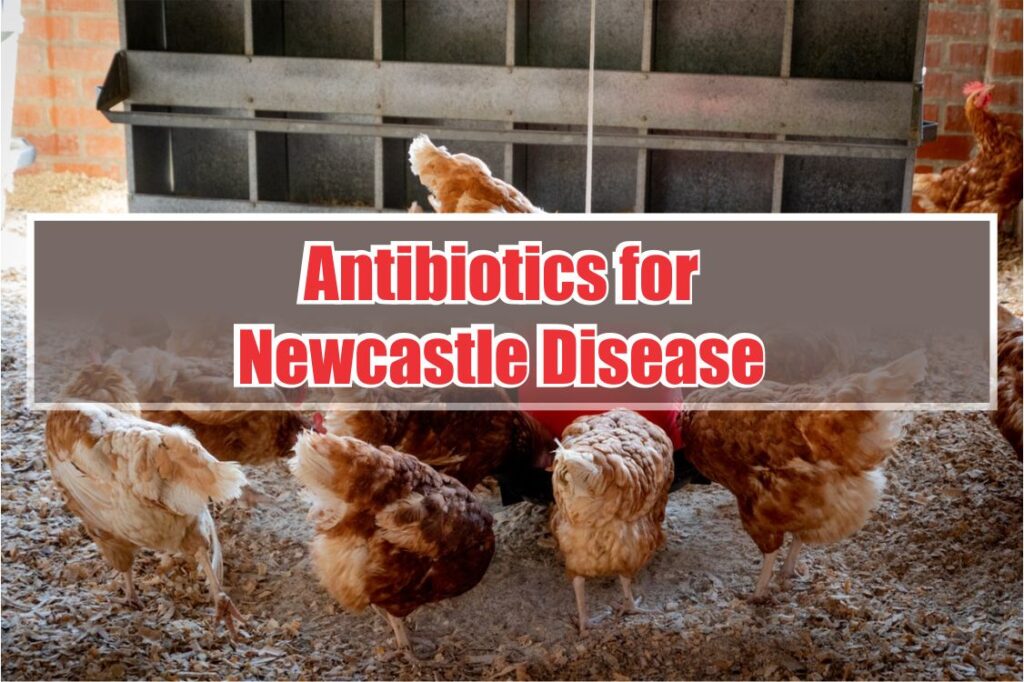Using Antibiotics for Newcastle Disease in Poultry

Yes, the use of antibiotics for Newcastle disease has generated a lot of friction among the poultry professionals and those who just need a solution. Of course, strong antibiotics work for farmers when their birds show signs of newcastle but antibiotics don’t treat the disease. I know this requires further explanation, and I am willing to make things crystal clear. Only make sure to read this post to the very end.
- Advertisement -
While there is no known treatment for the disease called Newcastle, antibiotics for Newcastle disease can cure secondary infections. Newcastle disease often breaks down the defense of a chicken’s body which is the chicken’s immunity. As a result, the chicken is unable to fight bacteria and other disease-causing microorganism in it’s environment. Hence, we find out that a chicken suffering from Newcastle can die of many things. Because Newcastle itself cannot be treated, what farmers do, is to manage the situation. They treat the secondary infections and hope that the bird will recover if it’s immunity is strong enough.
- Advertisement -
Table of Contents
How Can We Stop Newcastle?
Now that you have known that antibiotics for Newcastle disease is not the way, let’s look further. To stop Newcastle disease is to stop new infections. This is mainly through prevention, and any farm that embraces good bio-security is already doing that. The following are some of the ways to prevent Newcastle Disease on your farm:
- Do not introduce new chickens to old ones without quarantining
- Keep your birds’ Newcastle disease vaccination up-to-date
- Carefully dispose off vaccine bottles
- Proper disposal of dead infected birds
- Zoning of infected area
- Avoid vaccine spillage during vaccine administration
- Prevent vaccine failure
- Do not allow visitors or items from another farm into your pen.
How Do You Treat Newcastle Disease Naturally?
Some farmers use antibiotics for Newcastle disease but there is more. As an advocate of organic poultry farming, I have discovered numerous ways of managing Newcastle disease organically. Because of my experience as an Animal Scientist, I am aware that all of these methods don’t just treat Newcastle. At least not directly. The main focus of the organic medications is to clear any secondary infection and boost the birds’ immunity. With this, chickens can naturally fight the disease. I want us to consider the indigenous breed as an example. I have encountered a lot of local chickens that contracted Newcastle and won the fight after a while. Even some of them experience the most virulent strain and showed torticollis (twisted neck). But after a while, they survived. This is a clear indication that if a chicken’s immune system is strong, there is a good chance of survival.
Instead of looking for antibiotics for Newcastle disease, let us consider using herbs and spices to boost chicken immunity. Such spices and herbs, as well as ways of using them are available in this poultry manual.
What are the Symptoms of Newcastle Disease?
To understand the symptoms of Newcastle disease, it is important to know that there are three strains. One of them come with gastro-intestinal signs, another with respiratory signs, and the third with nervous signs. Because of this, the signs of Newcastle disease include the following:
Respiratory Signs of Newcastle
- Gasping
- In extreme cases, asphyxia before death
- Coughing
- Other breathing problems
Gastro-intestinal Signs of Newcastle Disease
- Watery diarrhea
- Greening poop
Nervous Signs of Newcastle Disease
- Circling
- Torticollis
- Complete paralysis
- Depression
- Ataxia
- Eventual death
Can a Chicken Survive Newcastle Disease?
The simple answer is Yes! Although the disease can cause mortality rate of up to 9% or more, chickens can survive it. When secondary infections are effectively managed with antibiotics for Newcastle disease, or effective organic medications.
Can You Eat a Chicken with Newcastle Disease?
In the history of Newcastle disease infection, humans have never contracted the disease by eating poultry product. Do your part to cook your poultry meat well before you eat. Few cases of infection in humans have been limited to mild conjunctivitis which normally heals without any treatment.


